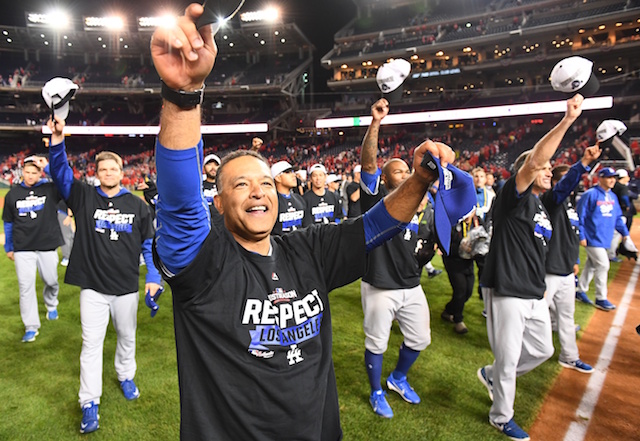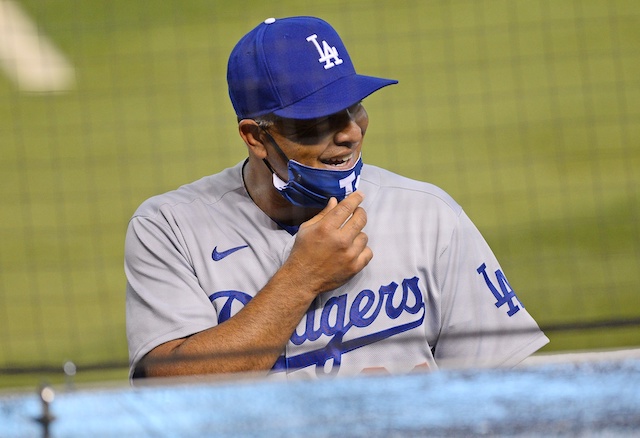On the heels of a second consecutive first-round exit in the playoffs, the Los Angeles Dodgers and then-manager Don Mattingly agreed to a mutual split. The news hardly came as a surprise given Mattingly was not hired by Dodgers president of baseball operations Andrew Friedman.
In his five seasons as manager of the Dodgers, Mattingly went 446-363 (.551), but only 8-11 in postseason play. He did guide the club to three consecutive National League West division titles for the first time in franchise history, and three straight seasons with 90 or more wins for the first since 1976-78.
An exhaustive search to find Mattingly’s replacement concluded Nov. 23, 2015, when the Dodgers formally announced the hiring of Dave Roberts.
Although perception holds that Friedman and his front office immerse themselves into the everyday managing of the club, Roberts credited the group for their hands-off approach.
“I was given the autonomy and flexibility to stay micro-focused with our guys. Andrew and his guys allowed me to stay focused on the day-to-day,” Roberts explained this week.
“I think that really helped me to not get ahead of myself. Once you start getting ahead too far, I think distractions, noise, pressure and stress all kind of come into play.”
Roberts inherited a club with plenty of expectations, which he fully embraced. The rookie manager led the Dodgers to another 90-plus win season and NL West title.
That was despite Los Angeles setting a Major League record by placing 28 different players on the disabled list, including Clayton Kershaw, who was lost for 75 days. The Dodgers’ ability to overcome adversity is a testament to the positive environment and culture Roberts carried forward.
It’s an aspect Friedman stressed last offseason, and one he regularly praised Roberts and his coaching staff for establishing. “The foundation of where we want to go, I think a lot of good things are in place,” Roberts said.
“The time we put in to creating an environment, synching up with ownership, front office, coaching staff, players and training staff, those things are really tangible. We’ll be ready to go in the spring.”








